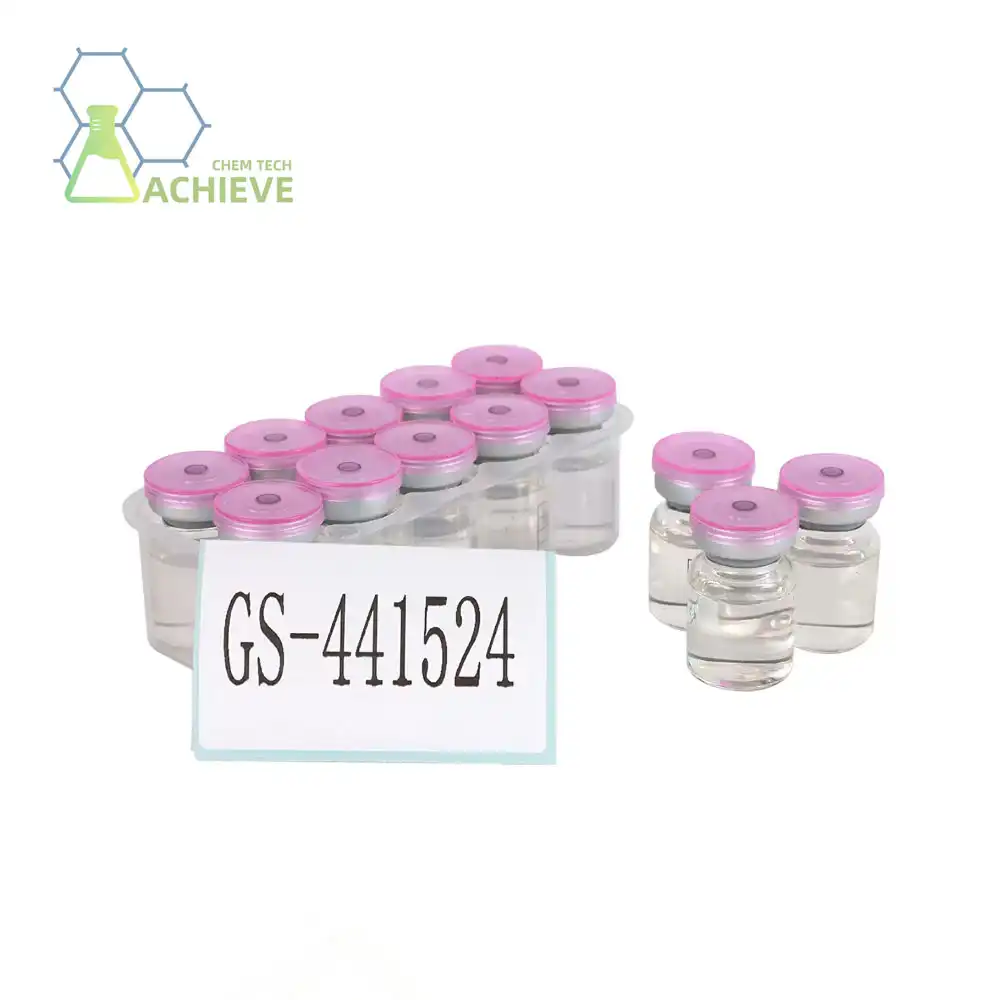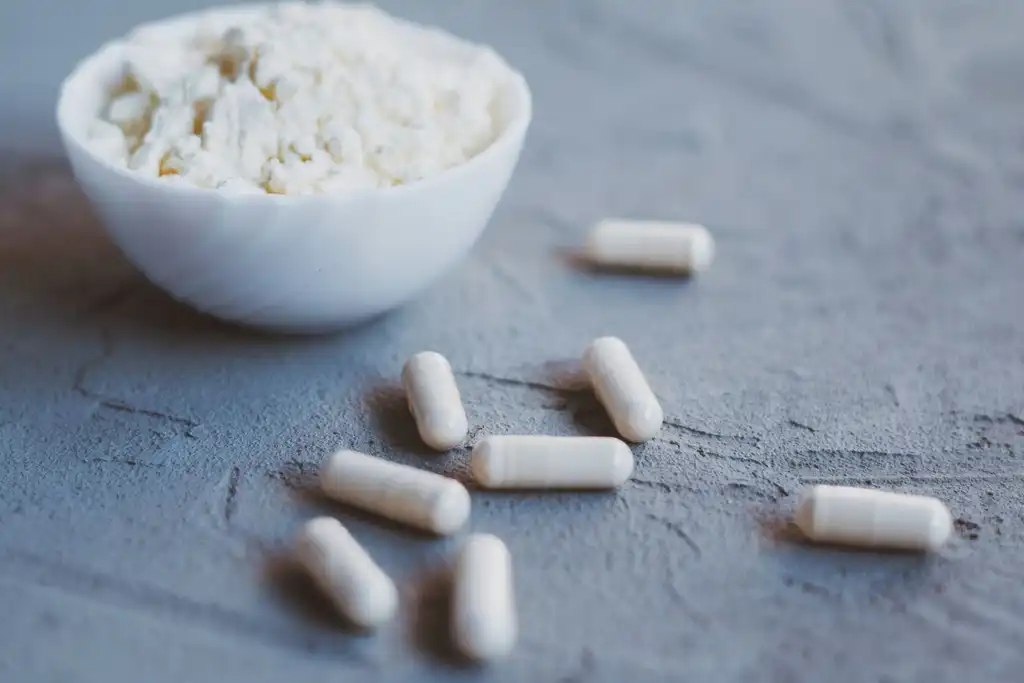How often should I re-examine a cat on treatment with GS-441524?
Treating feline infectious peritonitis (FIP) with GS 441524 injection has revolutionized the management of this once-fatal disease in cats. However, successful treatment requires vigilant monitoring and regular re-examinations. This article will guide you through the recommended schedule for check-ups, blood tests, and long-term follow-up for cats undergoing GS-441524 therapy.
|
|
|
Product: https://www.bloomtechz.com/oem-odm/injection/gs-441524-injection.html
Recommended vet check-up plan during FIP treatment
When initiating GS 441524 injection treatment for FIP, it's crucial to establish a consistent re-examination schedule with your veterinarian. The frequency of these check-ups may vary depending on the severity of the case and the cat's response to treatment, but a general guideline is as follows:
- Initial examination: Before starting treatment
- Week 1: Check-up at the end of the first week
- Weeks 2-4: Bi-weekly examinations
- Weeks 5-12: Monthly examinations
During these visits, your veterinarian will assess your cat's overall health, weight, and clinical signs. They'll also monitor for any potential side effects of the medication and adjust the dosage if necessary. These regular check-ups are vital for ensuring the treatment is progressing as expected and for catching any complications early.
It's worth noting that some cats may require more frequent examinations, particularly if they have neurological or ocular involvement, or if they're not responding to treatment as quickly as anticipated. Your veterinarian will tailor the re-examination schedule based on your cat's individual needs and progress.
|
|
|
|
Blood tests and monitoring for cats on GS-441524
Blood tests are a vital aspect of monitoring cats undergoing GS 441524 drug therapy for FIP, providing essential information about how well the cat is responding to treatment and whether any complications arise. Regular blood work is necessary to ensure the cat's safety during the treatment process and to track its overall health. The typical blood testing schedule usually consists of:
- Baseline tests: These are performed before starting treatment to assess the cat's initial health and organ function.
- Every 4 weeks: Testing every month during the treatment helps to detect any early changes in the cat's health, including potential side effects or organ stress.
- At the end of the treatment period: Once the treatment is complete, blood work is done to assess recovery and ensure that the cat is responding well to the therapy.
Among the blood parameters that should be monitored, the following are the most important:
Complete Blood Count (CBC): This test evaluates the overall number and types of blood cells in circulation. It is especially important to watch the hematocrit (which measures the percentage of red blood cells), the white blood cell count (which helps detect infection or inflammation), and platelet count (important for clotting ability). Any abnormalities in these values could indicate underlying issues, such as bone marrow suppression or infection.
Serum Chemistry Panel: This panel checks a variety of organ functions and includes key values like total protein, albumin, globulin, and the albumin-to-globulin (A:G) ratio. The A:G ratio is particularly valuable in assessing liver function and inflammation levels, which are crucial when treating FIP.
Specific FIP Markers: Some veterinarians may opt to monitor specific markers related to FIP, such as serum amyloid A (SAA) or alpha-1 acid glycoprotein (AGP), which help indicate inflammation and disease progression.
Along with blood tests, your veterinarian may recommend imaging studies like ultrasounds to monitor the cat's internal organs, especially in cases with wet FIP where fluid accumulation may be present. Imaging can reveal changes that blood tests alone may not detect, ensuring that no internal issues go unnoticed.
While blood tests are incredibly useful, it is important to interpret them alongside the cat's clinical signs and overall health. Some cats may show significant improvement in their blood work within 4 to 8 weeks of starting GS-441524 therapy, while others may take longer to show any changes. Each cat is unique, and recovery timelines can vary based on the severity of their condition and response to treatment. Regular communication with your veterinarian is essential to adapt the treatment plan as needed and provide the best care for your cat.
|
|
|
|
Post-treatment follow-up: How long to monitor after GS-441524?
The journey doesn't end when the GS 441524 treatment concludes. Post-treatment monitoring is crucial for ensuring the cat remains in remission and for detecting any potential relapses early. The recommended post-treatment follow-up schedule typically includes:
- Immediate post-treatment: Examination and blood work within 1-2 weeks after completing treatment
- 3 months post-treatment: Full check-up and blood work
- 6 months post-treatment: Another comprehensive examination and blood tests
- 1 year post-treatment: Final scheduled follow-up, unless concerns arise
During these post-treatment visits, your veterinarian will perform thorough physical examinations and run blood tests similar to those conducted during treatment. They'll be looking for any signs of disease recurrence or lingering abnormalities in blood values.
It's important to remember that while many cats are considered "cured" after 12 weeks of treatment, some may require longer treatment periods or experience relapses. Therefore, owners should remain vigilant for any recurrence of symptoms, even after the formal follow-up period has ended.
Some veterinarians recommend annual check-ups for FIP survivors, even years after treatment, to ensure continued good health and to contribute to ongoing research about the long-term outcomes of GS-441524 therapy.
In conclusion, treating FIP with GS-441524 requires a commitment to regular re-examinations and blood tests. This vigilant monitoring is key to ensuring the best possible outcome for your feline companion. Always follow your veterinarian's recommendations for check-up frequency, as they may need to adjust the schedule based on your cat's individual needs and response to treatment.
For pharmaceutical companies and research institutions working on developing treatments for feline infectious diseases, BLOOM TECH offers high-quality chemical products essential for drug development and testing. Our GMP-certified production facilities and expertise in various chemical reactions make us a reliable partner in your quest for innovative veterinary treatments. To learn more about our GS 441524 injection products and how we can support your research and development efforts, please contact us at Sales@bloomtechz.com. Together, we can advance the field of veterinary medicine and improve the lives of cats worldwide.
References
1. Pedersen, N.C., et al. (2019). Efficacy and safety of the nucleoside analog GS-441524 for treatment of cats with naturally occurring feline infectious peritonitis. Journal of Feline Medicine and Surgery, 21(4), 271-281.
2. Addie, D.D., et al. (2020). Feline infectious peritonitis. ABCD guidelines on prevention and management. Journal of Feline Medicine and Surgery, 22(11), 1047-1056.
3. Krentz, D., & Zenger, K. (2021). Owner experiences and perceptions of caring for cats treated with GS-441524 for feline infectious peritonitis. Journal of Feline Medicine and Surgery, 23(12), 1145-1154.
4. Murphy, B.G., et al. (2020). The nucleoside analog GS-441524 strongly inhibits feline infectious peritonitis (FIP) virus in tissue culture and experimental cat infection studies. Veterinary Microbiology, 240, 108494.

Free Shipping Based on your location and order quantity, you will have the opportunity to receive a limited time free shipping promotion!

BLOOMTECHZ











